By Mark Ellis —
He was the youngest starting pitcher in Dodgers history, which led to some difficult moments for a fresh-faced kid with high ideals who learned to measure success God’s way.
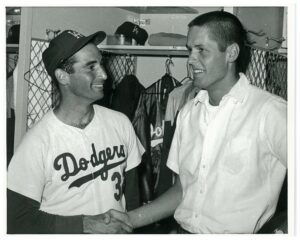
“I was drawn to God,” says Joe Moeller, who played for the Dodgers between 1962 and 1971 and now is an advance scout for the Florida Marlins.
He felt God’s tug on the heart from his earliest days. At only 8-years-old, he snuck out of his house in Manhattan Beach on Sunday mornings to attend a small church down the street. “My parents had no idea I did that,” he says.
While his mother was a Christian Scientist, his hardworking parents slept late on Sunday mornings and showed little interest in church. “My dad didn’t believe in anything,” he says.
Young Moeller walked himself into the back row pew each Sunday but couldn’t comprehend very much of what was happening. “We had a King James Bible at home but I didn’t understand a thing in it.” Still, the Lord continued to draw his heart.
One day a local youth pastor, Jim White, pulled up to Moeller on a motorcycle. “Want a ride?” he asked. It was a divine appointment on wheels.
Moeller accepted and they sped off. After a brief spin, White pulled over and asked Joe a serious question: “Do you know who Jesus Christ is? Moeller wasn’t sure how to respond.
“He’s the Son of God and he died for you,” White told the nine-year-old. “Do you want to accept Him?”
“Yes I do.” Joe said. From that moment, the course of his life was fundamentally different, with important ramifications for his athletic career.
Archery champion
Before Joe picked up a baseball glove, his father pushed him into archery. At six, he won the state championship in Illinois, where he spent his earliest years. The family – dressed in Western attire — performed a vaudeville routine in rodeos and sports shows, with Papa Joe firing at balloons William Tell-style, and the rest of the family shooting bows and arrows.
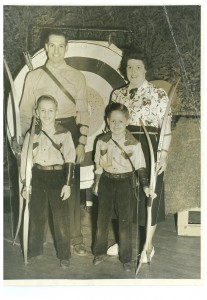
Joe was forced to practice archery every afternoon until dark under his father’s watchful eye starting at a young age. “I hated archery,” Joe admits.
One day he got up the courage to ask his father an audacious question. “If I win the national championship, can I stop shooting archery?”
Dad thought about it and finally agreed, so young Moeller practiced intensely every day. “There was a focus and a concentration that helped me later on,” he notes. He won the national junior title at the U.S. Nationals held in Sacramento and never touched a bow and arrow again.
Not letting Joe rest on his laurels, dad wanted to know what his son’s next challenge would be. “I want to play in the major leagues some day,” he replied confidently, not knowing what might lie ahead.
With German roots, both parents were old-school disciplinarians. Dad was driven — he expected a 100 percent effort for everything. “Dad would tell me he never wanted me to look back and wish I’d worked a little harder. That will haunt you the rest of your life, he said.”
“He was not abusive, but if I looked at him wrong I’d get decked.”
Ultimately, Joe realizes his father gave him the tools to succeed at a very high level. “It was a coach-son relationship,” Joe says. “I give him credit for building into me what it takes to become a professional athlete. Other guys didn’t understand what it takes to get to that next level.”
Joe also possessed some natural gifts. At 12, the six-foot-tall youngster was throwing shutouts in his first year of Little League. “God blessed me with an arm,” he concedes. The Boston Red Sox gave the family $5,000 for “first rights” to his future career while Joe was still in Little League, an illegal practice today.
Signing bonus
When Joe graduated from Mira Costa High School in Manhattan Beach, five cars were parked outside the family’s modest home, with reps from various teams prepared to make lofty offers.
Walter O’Malley, the Dodgers owner vilified by some for moving the team from Brooklyn to Los Angeles, also had his eye on Joe, and called Papa Joe a few weeks before the graduation. He invited the senior Moeller to sit with him behind home plate at a game, and extracted an important concession. “Promise me you talk to us last,” he said.
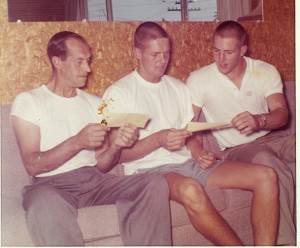
Detroit offered a $90,000 signing bonus. The Chicago Cubs offered $95,000. These were astronomical numbers for a family that lived paycheck to paycheck. “We weren’t really poor, but we ate eggplant for a week at a time,” Joe recalls.
Ultimately, the Dodgers won the bidding war through O’Malley’s shrewd style. “Walter was a brilliant man,” Joe says. “I was a Dodgers fan going back to Brooklyn,” which sealed the deal. Joe received $65,000; his brother Gary got $15,000, and Papa Joe got $10,000, in a deal structured to please everyone in the family and lighten the tax burden.
“I couldn’t turn it down,” Joe says. “It was my dream. Out of a half million kids who plays Little League, only one makes it to the Major Leagues.”
In his first season, Joe played in the minors for Reno, Greenville, and Spokane, where he won 20 games and struck out 295 batters. It was said that his curve ball was “as wicked as Sandy Koufax’s.”
During his time in Greenville, South Carolina, he fell in love with Lee, who was just 16-years-old, and persuaded her parents they should get married. Moeller admits it was partly an effort on his part to assert his independence from his father. “My dad controlled everything I did,” he says. “I wanted to get out of his control and his clutches.”
Youngest pitcher
Then at 19-years-old and two months, he became the youngest starting pitcher in Dodgers history, a record he still holds. But when he advanced to the majors, the unthinkable happened – his most formidable pitch disappeared.
During Spring training, Dodger coach Joe Becker convinced Moeller he was throwing his curve ball incorrectly and told him to change his motion. “I was so young and eager to learn that if he told me to throw it between my legs I would have done it,” Joe recalls.
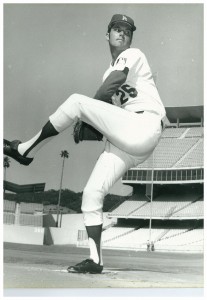
“Becker told me to throw the ball like Phil Ortega, but Ortega had one of the worst curve balls in our system,” he notes. “It didn’t make sense, but I was 18 and I thought if he told me to change it I couldn’t refuse.”
While Moeller was one of the hardest throwing pitchers on the Dodgers, his inability to recover his curve ball dogged him the remainder of his career. “I never really regained it,” he admits. “Why I couldn’t find it again I don’t know.”
Moeller faced other challenges relating to the team socially, due to his youth and inexperience. There were resentments from some players because of his signing bonus. Players and reporters began to refer to him as the “bonus baby.”
“The bonus I got was more money than they made in three or four years,” he notes. Until they held out for more money in 1966, stars such as Koufax and Drysdale were only making $35,000 a year.
Dodger coach Leo Durocher, known as ‘Leo the Lip,’ was unmerciful to the newest youngster on the team. “Durocher absolutely hammered me all the time,” Moeller recalls. With reporters standing around, he would call out to Joe: “Hey kid, want to go out for some drinks after the game? Oh, I forgot, you can only drink milk shakes.”
Durocher became famous for uttering the line, “Nice guys finish last.” Moeller’s nice-guy image – full of sincerity and humility, seemed to grate on Durocher. “He didn’t like the fact that I was there. When there was a team party on the road, I was never invited.”
One day Tommy Davis pulled Durocher aside and told him to “lay off the kid.” Ironically, it was the black players on the team who befriended Moeller. “Four or five of the black players always invited me to hang out with them. Maury Wills would always play his banjo.”
“I couldn’t figure out why, but all of a sudden Durocher laid off me.” Years later, he learned that Davis intervened on his behalf and Moeller called to thank him.
In the 1962 season, Davis had his break-out year, batting .346, as the team finished the regular schedule tied for first place with the San Francisco Giants. Moeller had six wins and five losses after pitching a total of 100 innings.
A team meeting was held to divide year-end bonuses between the players. “When my name came up, center fielder Duke Snider said, “He doesn’t need it. He already got a big bonus.” Moeller was voted a one-half share – modestly above the amount given to the batboys.
“It was a long year and a tough year,” Moeller says. “My faith was the only thing that kept me going,” he affirms. Moeller and Snider continued to harbor a grudge toward each other after that incident. “We had a real struggle with each other,” Moeller admits. “We just did not get along.” But years later the two met at an old-timers game and settled their differences.
“I’ve accepted Christ in my life and He’s totally changed my life,” Snider told Moeller. “I would like to ask your forgiveness for the things I did to you.”
“I need to ask forgiveness from you because of the anger I held toward you,” Moeller replied. After that, the two became friends in a completely new way – as brothers in Christ, and would greet each other with a hug.
Moeller’s clean-cut image set him apart on the team. “They thought I was a goody two-shoes because I didn’t drink, I didn’t do anything, so that ticked them off,” he says. “I went back to my room and tried to figure out what plans God had for me.”
During the 1963 World Series, Moeller’s father died from kidney failure. “They were just starting dialysis and wanted $25,000 for treatment.” His father declined and succumbed to the inevitable. Later, Joe ran into Jim White, the youth pastor who led him to Christ. White had a surprise for him. “I want to let you know your dad accepted Christ,” he said.
Joe was “blown away” by this wonderful news.
Bumps in the road
After his first few seasons, Moeller ultimately gave in to peer pressure. He thought he needed to try some of the extracurricular activities of the other players to be accepted. Every night when they were on the road, players would find their way to the nearest bar – usually known hangouts that attracted a raft of beautiful women.
On one of these outings, he watched fellow pitcher Don Drysdale slap $20 on the bar and tell the bartender, “Keep the drinks coming until this runs out.” In those days, drinks were only a dollar.
“Mickey Mantle drank all night and would go out and hit three home runs the next day,” Moeller recalls. “He’d go out and drink the next night. The guys were also heavy smokers. It was a different era.”
“It amazed me how some guys in the bullpen would arrive at the ballpark. I would be getting up for breakfast and they would just be coming in. I wondered how they could even walk straight. Yet some were outstanding pitchers.”
Because of Moeller’s faith, he found this time in his life unfulfilling. “I tried these things but it just wasn’t me,” he confesses. “I knew I wasn’t pleasing God. I didn’t want to face Him for the things I was doing. I felt God’s presence all the time and it bothered me because I knew I was disappointing Him.”
Renewed faith
A turning point came for Moeller in 1966 when he roomed with Don Sutton, an outspoken Christian. He credits Sutton and Jeff Torborg with helping him to find a renewed focus on God.
The three started a baseball chapel service for the Dodgers that steadily grew. “When we were on the road we had to be at the ballpark so early on Sundays that you really didn’t have time to go to church,” Moeller recalls. “Sutton knew pastors in some of the cities and he would ask them to come out and talk to us in a side room in the clubhouse. Soon another player would ask if he could join us until we had as many as 10-12 players every Sunday.”
On the field, it was difficult for Moeller to break into the ranks of the starting pitchers. “We had Koufax, Drysdale, Sutton, and Osteen,” Moeller notes. “People said that on any other ball club I would have started every fourth day. But we always had the best pitching in baseball.”
Moeller pitched two innings in the 1966 World Series against Baltimore. His best years with the Dodgers were 1964 and 1970. He won seven games in both seasons. Over the course of his career, he had 26 wins and 36 losses, had a 4.01 ERA average, with 307 strikeouts.
Later, injuries began to take their toll on Moeller’s arm, which affected the speed of his pitches. “I knew if I had a sore arm, someone else would take my place,” he says. “If I got injured, I didn’t tell anyone about it. I would go to a doctor and get a cortisone shot. I would go back to the club and they would give me another one.” He estimates he had at least 60 cortisone shots in his throwing arm, which turned the inside of his arm into “mush.”
“There were times I wanted to quit baseball; I wanted to get out.” People asked him if he wished he had been with another ballclub where he might have seen more playing time. But Moeller is not one to complain about his treatment by the Dodgers or express any remorse whatsoever.
“I’m very grateful because I had an opportunity to do something millions of kids would love,” he says. “God blessed me with the ability to throw a baseball like I did.”
In 1970, someone found some old films from his first year pitching in 1961. As a result of watching these films, he made some corrections to his delivery and started to get his famous curve ball back again. But it was too late because his arm strength was waning. His last season with the Dodgers was 1971. Then he spent his last two years in Hawaii, playing in the Pacific Coast League.
Measuring success
Ultimately, the bright promise of his very first season was never fully realized, partly due to the loss of his curve ball. Two failed marriages also left their mark. But Moeller sees his career and his life from a different perspective today. He began to measure successes and failures from a different perspective — God’s perspective.
“Success in life is not determined by performance, income or fame. Those things will not get us into heaven. It didn’t take me long to realize that no amount of wealth, fame or personal pleasure could fill the emptiness in my life because no matter how much I had it wouldn’t be enough,” he says.
Moeller found a measure of temporary happiness on the baseball field, but not lasting contentment and peace. “I realized the key to real joy in life is a personal relationship with Jesus Christ. God was the answer and he filled the void in my life.”
In his earlier days, Moeller says he wanted to “be the architect, draw up the plans, and then get God’s stamp of approval on what I did.” After he retired from playing, he had more time to draw near to God. He met a woman named Trudy, and this time Joe took things more slowly. They got to know each other over the course of five years and became best friends. “She is such a solid person, with great character qualities,” he says.
Trudy and Joe have a happy, fulfilled marriage today centered on their friendship with one another and their relationship with God. Joe’s involvement with Fellowship of Christian Athletes has also been a source of joy for him. He served on their board in L.A. for 10 years alongside John Wooden and Don Moomaw.
“By establishing a personal day-by-day relationship with Jesus, I received so much more than eternal life,” he says. “Christ gave me a real joy and peace I never had before. God also gave me the strength to face the adversity that came my way.”
Moeller says the greatest day in his life is when he accepted Jesus Christ as his Lord and Savior. The second greatest day happened in a hospital room at the end of his mother’s life.
When he went to visit her, he knew her time was short. As he sat down next to her bed and held her hand in his, he said, “Mom, I want to talk to you about Jesus Christ.”
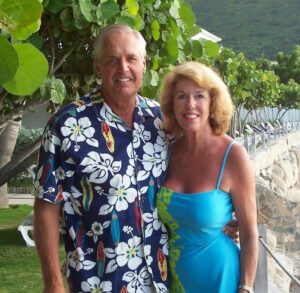
She turned her eyes away. There seemed to be a wall of separation between them. “Don’t you want to be with dad?” he asked. “Do you remember Jim White? Dad accepted Jesus Christ when he met with Jim.”
Yes, she did want to go to heaven. Yes, she did want to see her husband again. At that moment, she prayed to receive Christ with her son.
“I walked out of the room and she died an hour later,” Joe says. “It was incredible how God used me.”
If you want to know God personally, go here

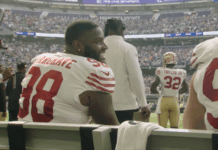
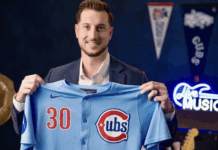
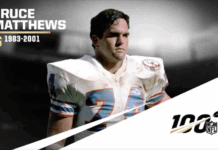
Joe, I’m not sure you will remember me however you extended your friendship to me while you worked at the Surprise Store in Torrance back in 69-70. I was the little guy who managed the stereo store in front of the Surprise store. cassette tapes just came out and I made you a copy of a few of the games you pitched with Vin Scully doing the radio coverage. You arranged to have a few of the Dodgers come to my grand opening. I still have a letter you wrote to me from spring training but most of all I remember your kindness. I only wish I knew of your early commitment to God. I gave my heart to Jesus in 1976 at Calvary Chapel Costa Mesa and have been blessed in so many ways I cannot even begin to explain. My wife and I would go to Angels stadium and pray for key players to come to know him. Low and behold we learned that Frank Tannana made a commitment back in the late 70’s. So often we fail to pray for what seemingly seem to be successful people. Many of them are the most needy. Let me know what ministry you are involved in . I’d really enjoy seeing you again some day. I’m writing as the Marlins are whipping the snot out of the Angels tonight. Take care. Glen Mashburn. P.S. I’ve got a grandson who you will here of some day in the future.
For Joe Moeller
Dear Joe: I don’t know if you remember me or not. However, I remember you. We played baseball together, as far back as the Pacific Little League, when I caught you, as a ten year old, for part of the all star game which we lost but in which you pitched and hot a home run. We also played at MCHS but I was a sophomore in your senior year. Your great athleticism marked you for a career in MLB. I had that dream also but was not so nearly talented and gave up baseball in college and eventually became a lawyer and settled in Indonesia for most of my professional career. You can find me at the http://www.ssek website. I have been married to a lovely woman for 47 years now and have a wonderful family of two daughters and two grandsons. One, a ten year old, has grown up mostly in Indonesia and has never touched a baseball. That daughter and grandson, ironically, have now moved to Manhattan Beach. My wife and I am visiting them now and tomorrow I am buying him a baseball glove and ball as he wants to play. How natural and odd at the same time.
I was deeply touched by your history as a Christian and hope you life has been fulfilling. Best Wishes
Darrell Johnson
Joe: I know you don’t remember me but your brother Gary and I used to play tennis in the mid-sixties. Once, you and your dad watched Gary and I play in a doubles tournament. Gary was a really nice guy; as you know, a very promising career as a major league catcher. I knew your dad well-enough to ask him about hitting tips after a Colt League all-star game. God Bless you and Gary n
Hi Joe,
Ha ! I recall you and Gary shooting at (I think)Gage Park in Chicago in a city indoor tourney.
One of you were having trouble with your “knocking point” ..and Bill Perry, the city champion, took the time to re-do it for you. This impressed me (I was 17 at the time) ” How kind and thoughtful”
I recall thinking . He was so nice to me (GOD Bless him) and the next year…with his coaching…
I was city champion …and National Indoor (Chicago Round) champion . Now that was a true
“Sportsman” and a kind heart !
Now ….move ahead 10 years… I was hired to manage “Black Jacks” Archery center in No. Long Beach. A nice young fella came in to shoot . We got to talking …and it was your Bro. Gary ! : }
Wow ! I asked him to work as an instructor at the new range. We became friends…. love if he could get in touch with me . I left Cal. for a job at a new archery center in the Detroit area.
Gary lent me a ‘Samsonite” suit case for the trip. He is probibly waiting for its return !
( That was about 1964 !! ) Hopefully he can still recall that . : ]
I became a pro photographer (Google me ) and have been all over the world with me new wife
(of 42 years) Lynn. 3 of our Grand sons are in the ministry . Life is good…GOD is good !
Peace, Love and Joy,
Jerry Amster …the photographer.. NOT THE “DRUG DEALER ” on Google .
Joey,
Back in 1964 my husband Jack hired your then wife Lee to model for his company at the Pantages in Hollywood. I had just turned 21 and Lee was 20. You were a kid of 24 I think and Jack was 28. We all became best friends and Lee stayed at my house with your 2 little kids Gary & Lynne when you were on the road. I think that is their names. We had Brooks and Kendall. Later I know you had 2 more as did Jack and myself. Hunter in 1968 and Grant in 1970.
I remember Jack, Lee and myself watching you pitch against the Giants and we were just so excited. As we, you & I know, our lives changed, we each had 2 more kids, we all got divorced, and I last saw you around 1976.
I was so happy to find you on Google and to see you look just the same!!! Handsome as ever…
Jack passed at age 51 in 1987. I have never remarried. Once was enough.
I, now in my retirement from the medical world, work for the Anaheim Angels!!!! as an usher. And I live in Aliso Viejo with my dogs. My daughter Kendall lives in Laguna Beach.
I am so very happy for you to have met Trudy. I have not been fortunate enough enough to find another love. So, to keep healthy and active I am an usher at the Angels, also work Monster cars and Motocross. I am v.p. of my HOA.
If you have the free time, it would be nice to hear from you. There are not too many friends around from the “Good old days”!
Joey, I’m so happy to have found an old friend from the distant past. I hope to hear from you.
Sincerely,
Sheree Wilkinson
an old friend from 1964!!!!
Comments are closed.